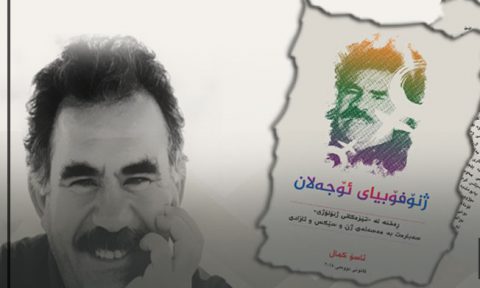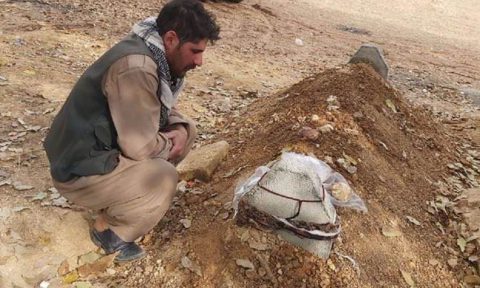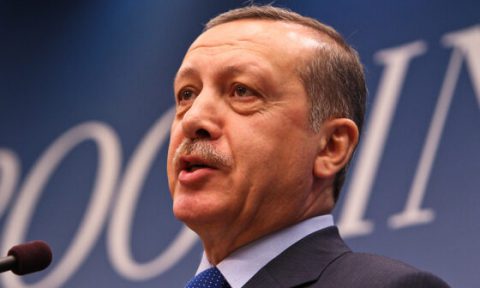A few days ago, a video went viral of man burning himself in Iraqi Kurdistan, in front of the UN’s head office in Erbil. Iranian Human Rights Watch followed up on the case of Behzad Mahmoudi, and clarified the details surrounding his stay in Iraqi Kurdistan, the reason he had left his home country Iran, and why he was so pressured to leave the region.
After publishing the pictures of the self-immolation and identifying the face of this person in media reports flooding Iraqi Kurdish media, Iranian media and social media platforms, Ghaneh Abdollahi’s family found out that Behzad Mahmoudi was the same person that had killed Ghaneh Abdollahi at Quds Square, Bokan, on December 13, 2016, and fled to Iraqi Kurdistan. Considering what happened, it seems that Mahmoudi, who has a history as a member of the Khabat group, intended to speed up the process to be sent to European countries by staging his act of desperation in front of the Kurdish regional media, in order to avoid prosecution by the victim’s family, that has been active in transfering the legal case surrounding the brother’s murder to the Kurdistan Region Government.
A spokesman for the United Nations High Commissioner for Refugees (UNHCR) also stressed that the agency would not provide legal assistance to people suspected of criminal or judicial crimes. “The UN High Commissioner for Refugees (UNHCR) wants to prevent refugees from being forcibly returned to their home country, and the UNHCR’s lawyers are defending the rights of asylum seekers in the event of legal problems; “But the Refugee Agency will not defend the rights of people with a criminal record.”
Regarding the recent developments and the need to clarify the dimensions of the case and also to save the life of Behzad Mahmoudi as a citizen of Iran – regardless of crimes committed – the Human Rights Watch of Iranian Kurdistan has issued the following statement:
The Iranian judiciary and the Ministry of Foreign Affairs must provide the necessary explanations and follow-up on the dimensions of the claim of the victim’s family, and if the claim is true, provide the ground for Behzad Mahmoudi’s extradition to Iran and justice for the family. Until then, the Iranian government has a duty to ensure his safety and recovery and to request consular access to him from the regional authorities. Behzad Mahmoudi is an Iranian citizen, regardless of membership in an illegal armed group (albeit with very few members) and possible murder, the Iranian government has specific responsibilities to protect his life and treatment.
The important and, of course, very bitter point of this story is the lack of reaction of journalists and photographers to Mahmoudi’s self-immolation. This shocking story provoked so many reactions in the region that after the widespread release of the self-immolation video of this Iranian citizen, the Ministry of Culture of the Kurdistan Region announced to the news networks that published the film and their employees, although present at the scene, were responsible to prevent Mahmoudi’s self-harm. If this is in any future situations is not done, it will be dealt with legally. In fact, if anyone should have prevented the self-immolation in the first place, it was the journalists who, unfortunately, did nothing.
In relation to the previous paragraph, the suspicious issue is Behzad Mahmoudi’s relationship with Khabat as an armed group. The history of Kurdish militant groups shows that they have repeatedly enforced members to burn themselves in order to raise awareness, escape punishment and, of course, to pursue their demands. In this regard, the PKK’s record as a Kurdish armed and militant group is clear, and Khabat group may have been influenced by this approach.
Though Khabat is the smallest and most insignificant Kurdish militant group, an important point in this regard is its extremely close relationship with the Mojahedin Khalq Organization. Khabat is a small, multi-member group close to the Mojahedin Khalq Organization. Locals tend to describe Khabat as the Kurdish branch of the Mojahedin Organization. The Mojahedin also has an approach that leads members to self-immolation in critical situations. Self-immolation of members of the organization in Europe for the release of the leaders of this group has occurred many times. The inhumane approach of the Mojahedin in dealing with members and the assassination and brainwashing of members has been endorsed by hundreds of dissidents and dozens of human rights organizations, among them Amnesty and UNHCR.
Another very important and, of course, suspicious issue is the coordinated presence of journalists during self-immolation and a kind of calmness and non-interference of journalists during self-immolation. It seems that they were already prepared for this and were perhaps even actively instructed not to interfere in this tragedy.
The next issue that proves the inhumane attitude of Kurdish armed groups towards their members is the silence of the Iranian Kurdistan Organization. This organization has not made the slightest reference to this self-immolation and its reasons on its website or social media channels: showing little respect to the life of Behzad Mahmoudi. This irresponsibility is the common denominator of all Kurdish armed and paramilitary groups whose members’s lives are important for a certain period of time, and after use, their status and destiny are not of great importance to the organization. Many of these armed groups prevent members from returning to Iran and claim, under false pretenses, that if they return, the individual will be sentenced to prison and execution. Perhaps if Behzad Mahmoudi had returned to Iran, due to the culture of consent in the Kurdish regions of Iran, the victim’s family would have forgiven him his crime.
Finally, once again, we emphasize the prompt pursuit of the Government of Iran, the Ministry of Foreign Affairs and the judiciary, and recall the responsibility of the Iraqi Kurdistan Regional Government. The regional government must seriously monitor the special conditions of Behzad Mahmoudi’s treatment and guarantee his health and life, while dealing with the passive journalists present at the scene. Also, the serious demand of the Iranian government and human rights institutions and the victims of the activities of armed and militant groups, should be the serious treatment of the regional government with the presence of armed individuals affiliated with these groups. The regional government must be aware of and act upon its international responsibility and prevent the presence of individuals affiliated with armed or terrorist groups. Really, why is the territory of Kurdistan region the place of presence and operations of the armed militias of the Kurdistan Democratic Party of Iran, PJAK and PKK and other people accused of murder and fraud?
Update: A few hours after the insertion of this statement and in the morning of the third Monday of June 1400, unfortunately, Mr. Behzad Mahmoudi due to injuries caused by self-immolation, passed away.










